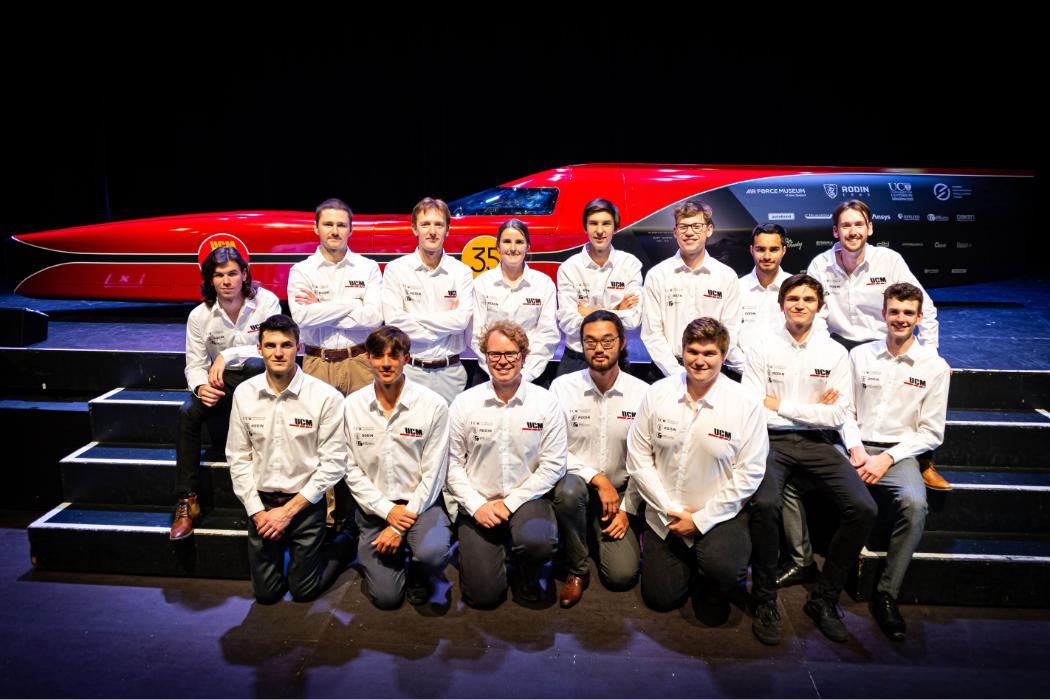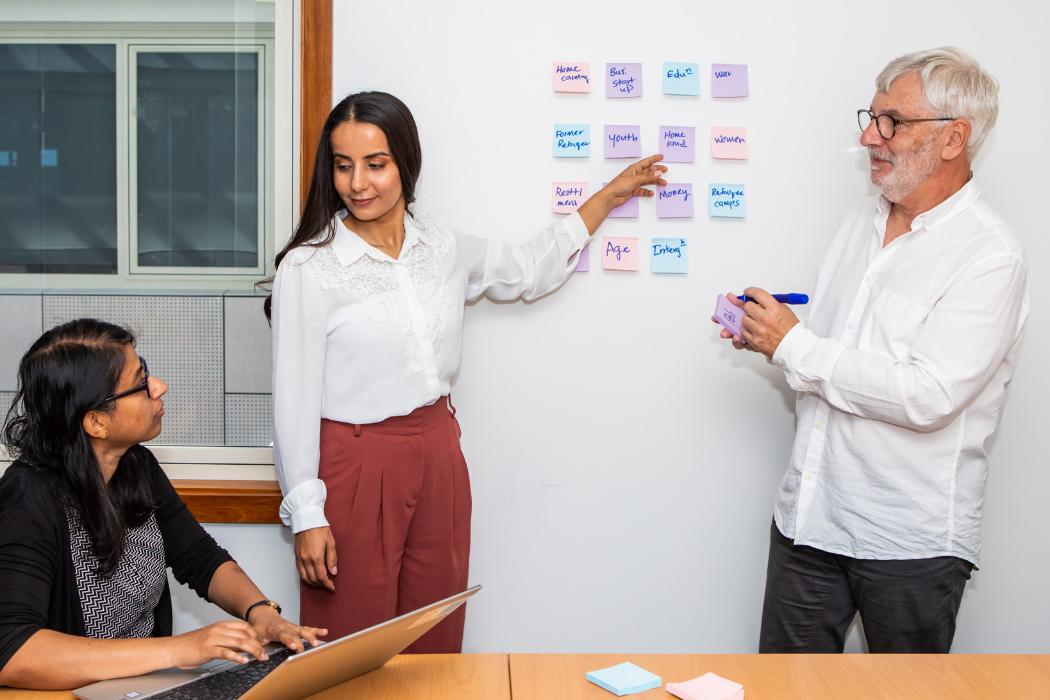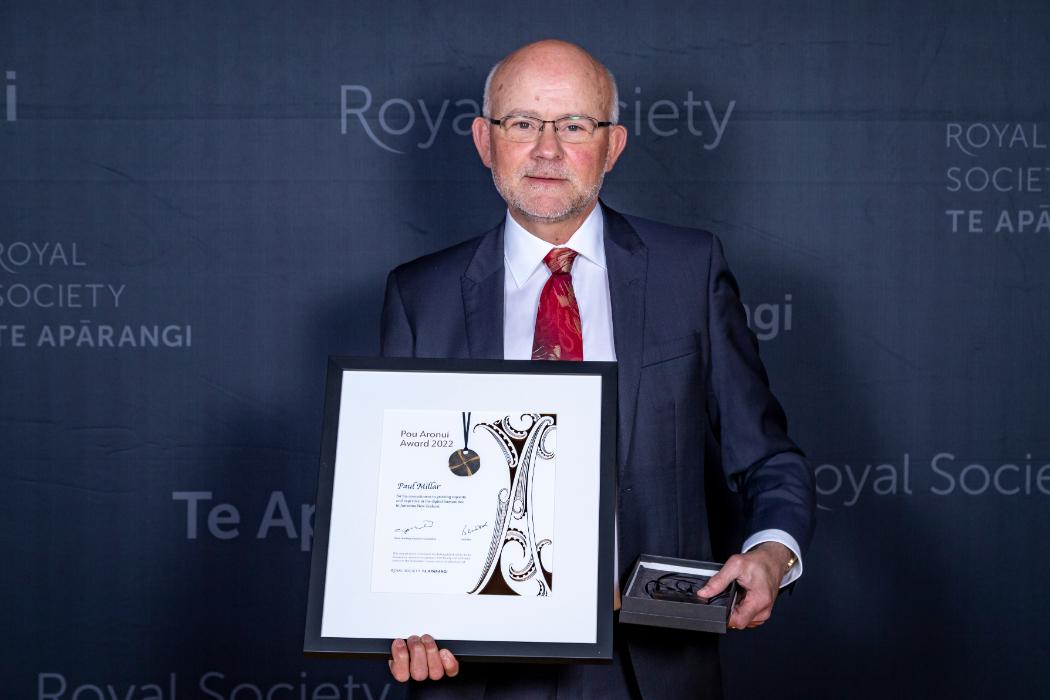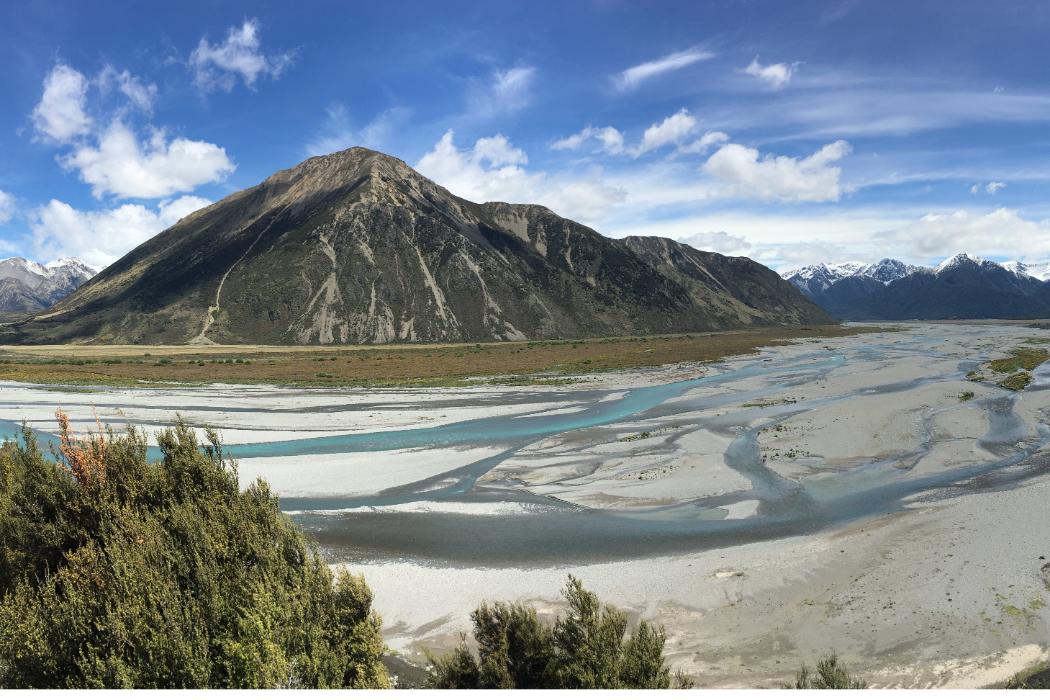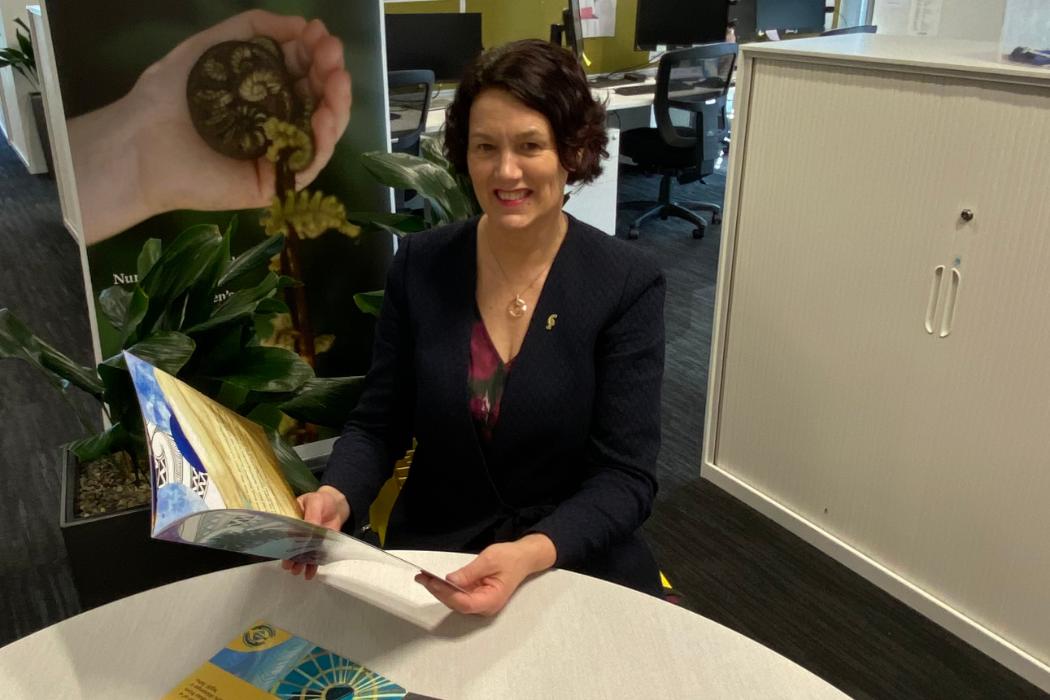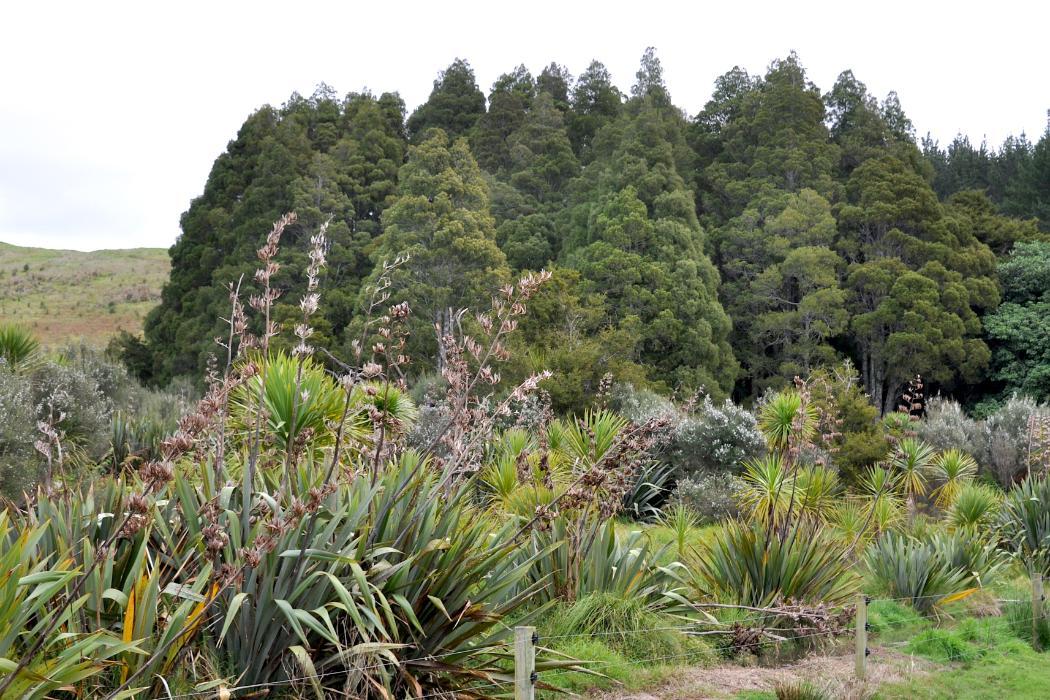Sixteen members of the University of Canterbury Motorsport (UCM) club, most of them in their final year of Engineering degrees, have spent 2022 building a 7.5-metre-long car they hope will break a record of 329 km/h currently held by an American university.
They plan to compete in Dry Lakes Racers Australia (DLRA) Speed Week 2023 at Lake Gairdner in South Australia in March 2023.
UC Motorsport Team Principal Kaenan Ferguson says it will be the first time a New Zealand university team has ever attempted a land-speed record at the event, and only the second time a university team from anywhere in the world has entered the electric competition class.
The club’s vehicle, UCM35, was unveiled at a launch event at the University of Canterbury Students’ Association Ngaio Marsh Theatre last night.
The race car features red, black and gold livery plus the number 35. These were Burt Munro’s colours and number when at the age of 68 he set a new a new official land-speed record (184mph) racing his heavily modified Indian Scout Streamliner at Utah’s Bonneville Salt Flats in 1967. His story was told in the 2005 Roger Donaldson film The World’s Fastest Indian, starring Anthony Hopkins.
Munro’s son John Munro and other members of the Munro family – who have given their support to the UC Motorsport team’s record bid – were among the guests at last night’s launch.
Ferguson and UC Motorsport Technical Director Max Zhang came up with the idea of breaking a land-speed record because they wanted to grasp a ‘once in a lifetime’ opportunity.
“It’s not about cars, although quite a few of us like cars,” Ferguson says. “This is a chance to do something that nobody in the world has ever done before and we’ll never get the chance to do again, so it’s pretty exciting.
“Brigham Young University in the United States is the only other university to ever compete in the Electric Land Speed category and they spent 10 years working on their car. We’ve had 12 months and we think we can break the E1 class record (electric car under 500kg) as well as competing for the DLRA E2 (electric car 500 to 1000kg) record by adding a bit of weight to the car for E2. The current E1 land speed record is 329kmh.”
The University of Canterbury has provided sponsorship, supervision, facilities and workshop staff for the project. The team has been using Wigram Airforce Museum’s runway for testing to develop the vehicle in a safe environment in Christchurch. Other major sponsors include Rodin Cars and Aruhiko Power Engineering Excellence Trust (PEET).
UC Design Engineer Bruce Robertson, who mentors the UC Motorsport team, says their achievement reflects the deep level of institutional capability within the university and the club.
“The project celebrates a connection to New Zealand engineering heritage through the Burt Munro story but is also very forward looking with use of technology for performance, efficiency, and safety,” he says.
“Already I think the team have achieved an extraordinary result, as anyone who sees the car will agree. The engineering detail is impressive, and the build quality is just beautiful.”
The fully electric car has a carbon-fibre monocoque (which houses the driver), fully electric powertrain system, front wheel drive, parachute deployment system, and on-board telemetry.
Ferguson says while speed is the goal, safety is paramount. The group has contacted previous DLRA competitors for feedback on their design, including Auckland-based mechanical engineer Eva Håkansson, who broke the land-speed record at the Bonneville Motorcycle Speed Trials on a custom-built motorbike in 2014, and will also be racing at Lake Gairdner in March. But the support of the Munro family has been particularly significant to the UC students.
“We wanted the car’s livery to honour Burt Munro so we contacted the family to see if they were OK with that, and they really liked what we were doing and have been very supportive,” Ferguson says.
“I’ve always idolised Burt Munro and his story and we wanted to build on that legacy. He was incredibly creative and was really up against it. For us, trying to build a car in 12 months was never a smart or easy decision but now it’s all coming together, and I feel really confident in the car.”
All 16 members of the club team plan to travel to South Australia for DLRA Speed Week in March where they will camp in the searing heat of the outback. It’s currently undecided who will drive the bullet-shaped electric vehicle for the record attempt, but the students will work it out soon.
Cars, motorbikes, and trucks driven by competitors from around the world are raced at the annual event to achieve speed records.
The UC Motorsport team’s ambitions go beyond Australia, however. Ferguson says they are keen to take on Bonneville Speed Week.
“We’d like to follow in Burt Munro’s trail and head to Bonneville in the United States next August, but we’ll make those decisions after the DLRA competition.”
Ferguson, who finished his Mechatronic Engineering BE(Hons) degree this year, has a job as a project manager for infrastructure consultancy and advisory firm Tactical Group in Auckland starting next year.
He says he’s learned a lot from the electric car project. “It has risks at every turn that you need to manage, and you have to constantly motivate a team to do the work when they could walk away from it at any time.”
